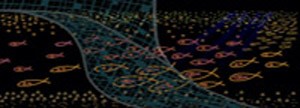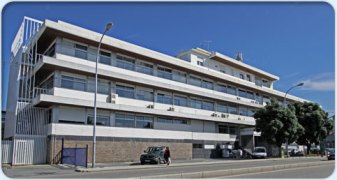The Institute of Marine Research (IIM) was created in 1951 by the Spanish Research Council (CSIC) as a coastal laboratory depending on the Institute of Fisheries Research (Barcelona) with the aim of finding solutions to the specific problems of the fishing sector. In 1978 the laboratory became independent and in 1986 the current name “Institute of Marine Research” (IIM) was adopted, more consistent with its present-day multidisciplinary marine research focus.
The IIM comprises four departments: Oceanography, Ecology and Marine Resources, Biotechnology and Aquaculture, and Food Technology. The Fisheries Ecology group is integrated into de Department of Ecology and Marine Resources; its aim is generating knowledge and develop the necessary instruments for putting into practice the ecosystems approach in the management of live marine resources. It is remarkable the participation of team members in scientific advising organisms of the fisheries management, like NAFO or ICES, like the NAFO Working Group on Reproductive Potential, and Working Group on Ecosystem Science and Assessment (WGESA).
The IIM, in conjunction with the Spanish Institute of Oceanography (IEO), the Fisheries Technological Institute of the Basque Country (AZTI-Tecnalia) and the Portuguese Institute of Sea and Atmosphere ( IPMA ) have been the institutions involved in the annual EU fisheries survey conducted in Flemish Cap in the month of June since 1988 (AZTI-Tecnalia up to 2008).
The Fisheries Ecology group is collaborating with GADCAP project at two different levels. It is providing, in conjunction with the above mentioned institutions, basic data and information for multispecies modelling from the annual EU survey. In adition, the Institute of Marine Research is providing also information about the spanish fleet in the Flemish Cap from scientic observers onboard of commercial vessels across the period 1987-1995. Furthermore, with their long experience, Fran Saborido Rey, Rosario Domínguez Petit and Alexandre Alonso Fernández, and Antonio Vázquez Rodríguez will contribute to the GADCAP project with their knowledge on the maturation process and the reproductive potential of Flemish Cap cod and redfish stocks. The Fisheries ecology group has deep knowledge about the Flemish Cap and its fishing history, which is especially valid for Antonio Vázquez Rodríguez, tenured scientist which, besides being one of the promoters and developers of the EU Flemish Cap survey since 1988 have been the scientist in charge of the Flemish Cap cod stock assessment between 1985 and 2006.


